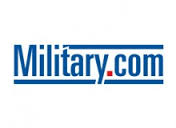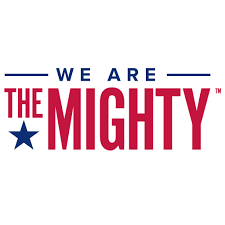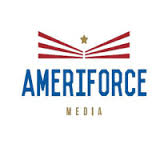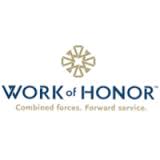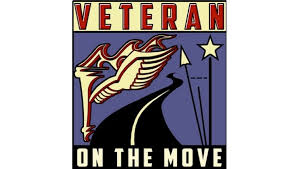How difficult was your transition to the civilian workforce and explain why it was easier or more difficult than expected?
Responses from Marine veterans (regardless of rank, education, years of service, specialty, age or gender)
1 |
More difficult |
It all goes back to potential employers not understanding veterans or the capabilities we come with. Those capabilities being both hard and soft skills. |
2 |
As expected |
My wife and I knew there were challenges, we made an accurate plan and timeline to address those issues and identify when life would get stressful, we allocated money towards expensive periods of transition, and we ended up generally sticking to the schedule of events and expenses. This did not eliminate the stress but it did help us prepare for financial and emotional challenges. |
3 |
As expected |
I knew i wanted a challenging professional career and prepared for it early by attaining an MBA years before transition and working a resume a few years before. I knew it would be on me and did not expect that TAP or recruiters would provide me anything. I expected I would have to grow my own network and do my own legwork, which is how I got my position. It was stressful as hell and frustrating but ended with a decent position. I have continued to work my butt off and take on extra duties and learn new things, which has resulted in advancement - not within my own companies but by being available ot move to others. 7 yrs later I am where I wanted to be as the #2 guy of a 180-person company but it was not because I ever depended on anyone or anything to assist me. I always assumed I would have to earn my own way and it worked out well for me. I think the #1 obstacle to most peoples' transitions is that they assume someone/something should provide them something or help them. Personal responsibility in transition is critical. |
4 |
More difficult |
Like most transitioning veterans (especially retirees), I was naively confident that companies would be lining up at my door to hire me once I created my LinkedIn profile and posted my resume on the job boards. |
5 |
As expected |
It takes a lot time and dedication to get the opportunities you are looking for and will take longer than you think. I read somewhere along my transition that it takes a month for every 10K in salary to land the career you are searching for. In my case that was very accurate. |
6 |
As expected |
My expectations were based solely on my ability to achieve. No one else was responsible. |
7 |
As expected |
Had to recoop from medical treatments. But due to family connections was able to attain employment. |
8 |
As expected |
It was stressful being without a paycheck and benefits which was difficult with a family but I knew this would be the case. I was able to find employment within a few months of separation, not what I wanted but between three jobs, I was able to get back into the workforce and position myself for bigger opportunities. |
9 |
More difficult |
Small town, not many opportunities made my transition very stressful. |
10 |
As expected |
I feel that the time and effort required when I left the military (1997) was very different from now. Jobs were more plentiful and employer's were more willing to hire people (not just military). |
11 |
Easier |
Really |
12 |
Easier |
The job was as a civilian, if I messed up no one died, unlike in the MARINES! |
13 |
As expected |
I did my reseacrh and knew what I was trying to do. It was hard but not surprising. I was as ready as I could have been, maybe with exception of a few certs I did not know about (PMP in particular). |
14 |
More difficult |
I thought it would be quicker but it took 6 months |
15 |
More difficult |
I didnt realize I was calibrated to expect something completely different. The world described, was not aligned with me...correction I was not aligned with the world's needs or expectations, and there in lies the crux of the transition programs and mindset of the Veteran leaving the service. |
16 |
More difficult |
Even after getting a degree, finding work was still hard. Skills from the reserve/guard are considered vastly inferior to the same skills from active duty. |
17 |
As expected |
If you prepare for it properly, it's smooth and not very stressful. If you don't put in any work on the front end, you're going to suffer when it happens. |
18 |
As expected |
I expected difficulties and obstacles, as they arose I overcame them. It can be difficult, but not impossible just like the military. |
19 |
More difficult |
don't have the job I want, and everything so far have just lead to dead ends and a job that I hate. |
20 |
More difficult |
I thought it would be much simpler. I didn't even end up in the city I preferred, I took a job in a city I didn't like (I love it now) because I only had one job offer after college. |
21 |
More difficult |
It is hard to move to a new trait after spending 12 years in the military. |
22 |
As expected |
It was much more emotional than expected. |
23 |
More difficult |
The difficulty in the transition is finding a fit. I'm on job #2 and still haven't found that "fit". I'll know when I find it and will be able to comment further when it happens. |
24 |
More difficult |
Since I had nothing to compare my transition to, I could only imagine what it might be like. Thank God for my retirement check. In fact, I did not know anything about VA disability Ratings. It took me 20 years later to earn a 70%. To think, my son owes $50K in student loans where as his schooling could have been free! I went from the most military Branch - Marines, to Corp America. I knew nothing about the culture, work practices (incl HR) not even the landguage used. As far as difficulty, I compared it to MC Bootcamp as far as survival skills. |
25 |
As expected |
I was able to find a company that had the organizational culture that I was looking for and fairly compensated me for my potential |
26 |
More difficult |
The unknown. Applying for jobs. In this day this day of age it's all about referrals. That's why it's important to network |
27 |
As expected |
I expected a lack of discipline and was not surprised with what I saw |
28 |
More difficult |
After 30 years in the military, I did not have the skills required for pursuing civilian employment. So I had to learn on the fly, by myself, and with some ups and downs. The interview process in particular. I was interviewed by some really smart folks and some dolts. I finally took the approach of walking in with the mindset that I was interviewing them, not the reverse. |
29 |
Easier |
My transition was easier than expected because I gained employment because I knew organizations that were hiring. Networking was the #1 reason why I got my first job after retiring from the Marine Corps. |
30 |
Easier |
When I chose to resign, I did not really know what the transition would be like, but I began networking and talking with people and found a lot of great resources to help me zero in on what I was looking for. Once I really knew what I was looking for and I knew how to interview, the process was easier than I thought. I got great responses from the companies that I met with. Some of that can be attributed to the fact that I was introduced through the military recruiting company, so the conditions were set for success. |
31 |
More difficult |
As I mentioned, I was given the impression that employers would be fighting over me given my advanced education and years in leadership positions. I was highly decorated and received dozens of awards yet I was still an unknown to corporate America. |
32 |
More difficult |
Not sure what I was expecting. |
33 |
Easier |
Not hard at all. Came home went back to previous employer, got a job |
34 |
As expected |
I was very prepared for my transition. I had started to leave the service at the 12-year point and changed my mind. That experience was terrifying and eye-opening and set the stage for me to spend the next 8 years preparing and studying. I can't imagine what it would have been like if I had started 6-8 months prior to my transition. |
35 |
As expected |
One could simply tell that veterans, especially newly transitioned veterans, stood out from everyone else. Their work ethic, etc. was ten times that of their civilian counterparts and the employer expected that kind of behavior from us, but felt the "status quo" for our civilian counterparts was still acceptable. You got all of the idiotic questions from fellow employees - Did you kill anyone, do you have PTSD, etc. |
36 |
More difficult |
I was not prepared for the differences between the civilian and military world - there was no one that I found to talk to who could explain it to me on my level as a 24-year veteran Marine Major. |
37 |
More difficult |
Very emotionally taxing. I had the feeling of being tired and physically drained for 3 years strait. I still feel the anxiety and stress of transition from time to time. |
38 |
As expected |
I had been preparing for a few years prior in anticipation of the end of a 20 year period of service. It did not look promising out here for employment in the central valley area of (state) and I didn't have the resources available to afford a move as I have been low income for some time. |
39 |
More difficult |
I thought it would be much easier to find a job, but I literally applied to 100 jobs, and barely got any responses. |
40 |
As expected |
Its hard, and it takes a lot of work to get into a good position. Work hard and don't settle for an average job if you have above average skills. |
41 |
As expected |
I didn't think it would be easy |
42 |
More difficult |
It was hard enough leaving and I found civilian sector employers to be less than welcoming to veteran candidates. |
43 |
More difficult |
I undestimated the hours, stress level, and the difficulty dealing with organized labor. |
44 |
More difficult |
I assumed corporate America and the Feds were highly structured and MOSs perfectly aligned. I also assumed the Universities were on top of their game and would make the application process and degree programs easy to understand. The Marine Corp is structured with efficient processes and the HR piece is rock solid regarding a career roadmap and educational targets or prerequisites for the next rank. False positive that is existed in CivDiv. CivDiv is organized chaos to say the least and "adaptability" is the key to survival of the fittest, e.g. adapting to socializing with networks of people who can care less about your military experience and/or country. |
45 |
More difficult |
I thought my skill set would be in demand |
46 |
More difficult |
I had a hard time adjusting to the lackadaisical attitude of civilians. I also had a very hard time coping with the fact that 9/11 had just happened and I struggled with feelings of abandonment, especially when guys started coming back hurt or dead. |
47 |
More difficult |
The people I worked with were not in the Marines. They were civilians mostly that never served. A language barrier. They could not understand why I worked so hard. |
48 |
As expected |
It was hard but i expected the trials. |
49 |
More difficult |
Most people did not see my military experience as relevant. Also, going to college so late was difficult as you were competing, learning and networking with kids 17-22 yrs old. Being 28 and a college grad with wife and kids was difficult to compete with job offers. 19 yr old with no wife and kids can be more flexible, less pay and more molded to their desires. |
50 |
More difficult |
Jobs are not that easy to get. |
51 |
As expected |
My civilian boss was a complete idiot. I quit so I didn't have to work for her any more |
52 |
As expected |
I made a plan to get out of the military, go to the best school possible and get a competitive job at a top tier firm. I did that. |
53 |
As expected |
I found friends in student organizations that lined up with my interests, but having been older and able to drink alcohol, I was frowned upon by younger students. However, once I started hanging around other veterans and those interested in the gym, I found my niche. |
54 |
More difficult |
I though I would be offered tons of jobs but I didn't and had to work exceptionally hard to find what I wanted. |
55 |
More difficult |
I have been trying to find a career for the past 5 years. I thought my skills and experiences would translate well, but that is not the case. |
56 |
As expected |
I expected the transition to be incredibly difficult, as it is a major lifestyle change no matter how you slice it. I think servicemembers need to go into the transition phase with that in mind. |
57 |
As expected |
It was stressful but doable. Save your money so you have room to think of what you want to do |
58 |
As expected |
Learning to deal with people without giving offense ,at have been the most difficult part. |
59 |
As expected |
I was going back to college soon after I EAS'ed. I had already been to college before I joined the Marine Corps, so I knew what I was getting into. |
60 |
More difficult |
I simply had no idea what to expect. My first two jobs were at (retail company) and at a (resturant). Since these had nothing to do with my previous experience I had to start learning from the beginning. It took a lot of humility to go from a well respected NCO to being taught how to do a minimum wage job. |
61 |
More difficult |
It took some time to figure out how to align my skills to a job. |
62 |
As expected |
It took longer to get a job and I had to reduce my expectations of my coworkers and employer. |
63 |
More difficult |
It was self induced difficulty, I didn't make any kind of plan. |
64 |
More difficult |
The emotional strain and stress on me and family was more difficult. Was the perfect storm of relo, family separation, building new house, dealing with renting old house, learning new role, working countless hours, unfamiliar non military community, dealing with the VA and medical issues, dealing with finding life insurance, not really liking my new job and struggling to be successful. Very difficult period of my life for about 36 months. |
65 |
More difficult |
I live in a very Rural area in upstate N.Y. Veteran support isn't huge and the stigma of war makes it difficult to secure a job. Many employers think veterans are loose canons. That's the farthest from the truth. |
66 |
More difficult |
Employers are NOT out there excited about hiring ex-military - especially mid-grade and senior officers. Pay and benefits are pretty good after you've been in a while and adjusting to the civilian reality isn't easy. There is a lot more work involved in the process than one might think (resumes, cover letters, research into companies, etc.) |
67 |
More difficult |
Based on all my military education, training and experience in logistics I thought it would prove valuable but because I had not completed my college degree I was offered only entry level pay and positions. I completed my degree and now my experience is valuable. |
68 |
As expected |
Transitioning is very hard and you must have a plan. I worked extremely hard to network and find a position that I was happy in. The old saying that "finding a job is a job" is very true. |
69 |
More difficult |
The expectations I had for a potential employer were based on my military experience. My company is a great company but still does not measure up to my military experience. I think it would be rare for someone who had a very positive experience in the military like I did to find a company who compares favorably. Sometimes I still feel like I'm learning how to be a civilian, even after almost 11 years since retirement. |
70 |
More difficult |
It depends on many qualifications and certifications. My higher degrees are from military resident schools. I don't have an MBA, PhD, or PMP. The Marines could do a better job of preparing officers for PMP certification throughout their careers. I'm a pilot who is too banged up medically to fly for an airlines; but, things are alright now. I have entered a field of service to our nation's veterans and I really enjoy it, despite the low pay. It is very rewarding. |
71 |
More difficult |
I didn't know how to put my military experience into civilian terms (i.e., project mgmt, leadership, etc... |
72 |
As expected |
My plan now is to be a "professional" volunteer with youth and young adults upon the completion of my BA in Psychology this summer. Between my retirement and disability compensation I don't need a paying job. I already volunteer 3-4 hrs a week with the county youth services where I live. |
73 |
More difficult |
I retired 13 months ago and still do not have a job. |
74 |
Easier |
I followed and worked my transition plan. |
75 |
As expected |
Going to interviews and trying to explain things from military viewpoint to civilian was challenging, but very much expected... |
76 |
As expected |
Again not the right information given at the transition class. |
77 |
As expected |
I knew it would be hard and I would have to dedicate time to the transition. I knew it was my responsibility and know one would check up on me. |
78 |
More difficult |
During the TAP classes they made it seem potential employers wanted to hire prior service members. True if you want a low level entry position at places that just want to say they hired service members. |
79 |
As expected |
I was mentally prepared to enter a world far different in mentality than the military is. I was correct in my assessment. |
80 |
As expected |
I knew life would be different, but I had a very supportive family to help me through the transition |
81 |
More difficult |
I expected it to be difficult, but I also expected a couple more life circumstances to break my way.... all in all I can't complain because things have gotten progressively better and easier, but I definitely underestimated the overall transition experience and how readily I could adjust within any civilian organization. |
82 |
More difficult |
Preparedness was shit |
83 |
As expected |
I didn't join the military until I was 21, I already had life experiences other than the military, I already knew what to expect |
84 |
More difficult |
I expected to be able to transition and find a job quickly which did not happen at all |
85 |
Easier |
Alot of it is about timing that you cannot predict to go along with your departure from the Military. If you are looking for employment and contact two companies, one of them just had their support contracts renewed or increased, and you apply and are hired, well that was smooth and easy. If you are looking for employment and there are less positions available with the companies you are contacting then it could be frustrating as you would have to contact more companies while your search continues. |
86 |
Easier |
My first job was with a govt contractor I had worked with while military. They matched the best of four other offers. |
87 |
As expected |
I was prepared prior to transition. |
88 |
More difficult |
Being the only Vet within a company who did not employee Vets it was just difficult because not many people would complete tasks as required. |
89 |
More difficult |
jobs to skill set.... |
90 |
As expected |
I thought it would be challenging but not impossible. |
91 |
As expected |
I was aware early that there would be difficulties. I had a plan to deal with the problems. |
92 |
More difficult |
No new job skills |
93 |
More difficult |
It's just DIFFERENT. You have that last move, hit a new city, get a new place to live, have concerns about family members, and you miss the military. |
94 |
Easier |
Throughout my 20 year career I prepared myself by graduating from police academy, taking college courses and graduating from college and saving my money. My last 2 years in the Marine Corps I started my company and was running my business while still in the Marine Corps. |
95 |
As expected |
My greatest obstacle is out of my control. Interviewing with hiring managers that have never served nor understand anything about military service. Frustrating but was able to overcome. |
96 |
As expected |
I was not expecting an easy transition so I prepare myself early, so I was mentally prepared for all the bumps along the way. |
97 |
More difficult |
I still haven't landed on my feet and I'm unemployed as I write this. I have lost motivation to try because "selling myself" feels like I have to do all the thinking for the other person. |
98 |
More difficult |
Harder to start business than I expected. In part due to reduced defense spending. |
99 |
As expected |
I kept my eye on the mission... providing for my family. |
100 |
Easier |
I had my career path set. Retired on a Friday and started my new job the following Monday. Having a plan and networking pays. |
Employment After the Marines
101 |
As expected |
Returned to same company |
102 |
More difficult |
I was not fully understanding the way the civilian workforce works. I was used to the military way of customs and courtesies, of dealing with military personnel and when I came out here to the civilian world it was a culture shock for me and after 20 years in the military it is hard to see what is there after you retire. |
103 |
More difficult |
I decided to pursue a civilian career that had nothing to do with my military career; wanted to get into medical field after being an avionics technician for 5 years in the Marine Corps. I made myself squeeze 2 Bachelor degrees of science (biology and nursing) out of the GI bill so I can be prepared to enter job market. Those 4 years of schooling were stacked and difficult, but well worth it as now I am a RN and basically have job security and versatility due to demand and nature of job, and also no student debt. |
104 |
More difficult |
I was not planning to get out. I was forced out. That alone made transition difficult. My original wedding date was postponed by the military, and it later impacted my wife's active duty orders. In the 10 months since I left active duty 6 guys were killed that I knew. |
105 |
As expected |
I did not chose to leave the military, so I wasn't exactly prepared and ready. It has been very difficult but I knew that it would be tough. |
106 |
More difficult |
No roadmap |
107 |
As expected |
I stayed within the federal government, but the language and use of military vocabulary was a change so I didn't upset civilian staff members. |
108 |
Easier |
I departed Active Duty with the guidance of someone outside the Transition Readiness Seminar or Marine Corps network. I was away from someone on a script or your senior SNCO who never transitioned out and thinks your wrong for doing so. The guidance from this individual made me have a mentality of civilian life is the new battle space. Just need to go out with a competitive and adaptive mentality and you'll be fine. |
109 |
As expected |
Expected not to have a job right away. Was able to attend and finish school until I was able to. |
110 |
Easier |
Networking. Interviewed with three companies- all of which sought me out |
111 |
As expected |
I went into a job field that I had prior skills in before the military, and that made it easier to get a job. |
112 |
As expected |
I got out, started to go to school, which is hard, got a part time job bar-tending on the weekends for fun money, and really that's it. Study, work all the time. |
113 |
More difficult |
Civilians are extremely lazy and in general like to harass people who do their job as expected and harass people who try to be excellent at their job. "Don't work so fast or they will expect all of us to work at that pace all the time." |
114 |
More difficult |
Stress was a factor because I have a family to support and feel let down by society as they have been anything but helpful on offering me a career. I'm just like you reading this right now I work hard, I have values. I have college credits, I have an internship, I have leadership skills but it never seems to be enough no matter how hard I try. |
115 |
More difficult |
It was very difficult because I wasn't really clear on what I wanted to do when I left the military. I did know I didn't want to work in the field I was in during military service. |
116 |
More difficult |
Interacting with civilian employees was hard for me to adjust to after working in a military culture for so long. I struggled relating to my coworkers and feeling like I belonged in the environment. |
117 |
More difficult |
Civilians do not understand or appreciate military experience, they will always choose a college degree over military experience. |
118 |
More difficult |
Explaining I'm an enlisted person who obtained all my college education through my MBA was always questioned even though I attended very good schools. University of Illinois Chicago |
119 |
More difficult |
Too much to mention... Basically, companies say they want you cause you're a veteran... but they don't want you to be a veteran... so... |
120 |
More difficult |
It was drilled into us that we had marketable skills but the reality is that everyone wants a college degree. |
121 |
As expected |
Transition after active duty was difficult but about what I expected. Without a degree or related experience, the job was means to take care of family while serving in the reserves. After working on degrees and building civilian skills, the transition to jobs more aligned with passion was much easier. |
122 |
More difficult |
There was no transition assistance program and I had to learn everything myself. |
123 |
More difficult |
I thought applying for jobs would lead to an interview; not the case. You have to have a strong network which can lead to an interview. |
124 |
More difficult |
The time and effort involved and the waiting process to be hired. |

